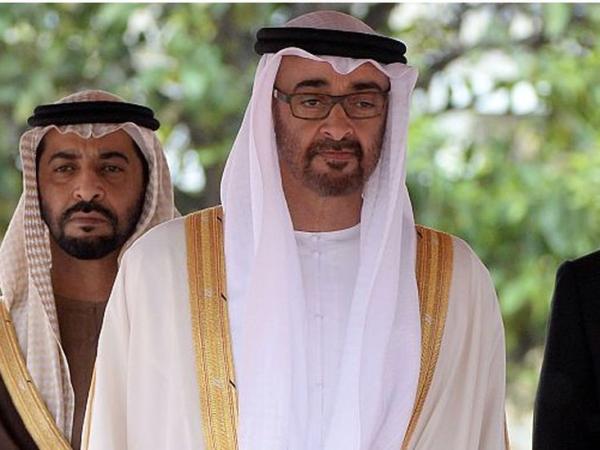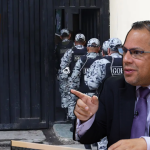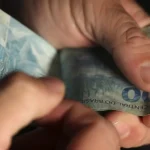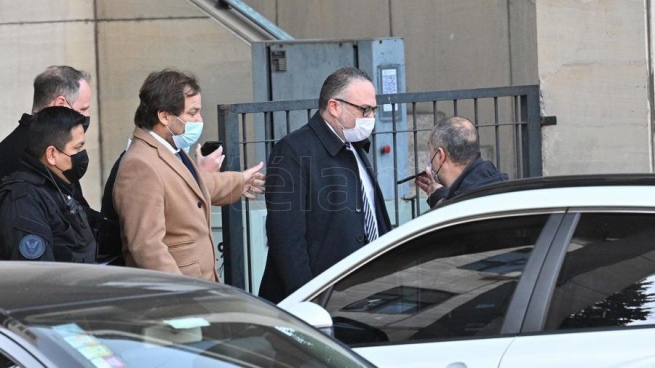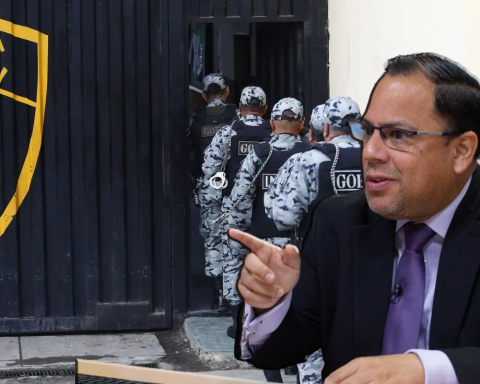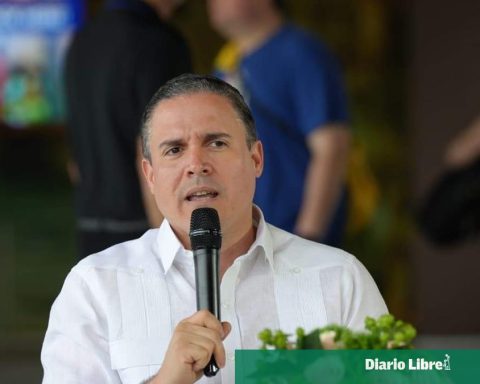Until only about 50 years ago, they were a group of tribal kingdoms in the desert of the Arabian Peninsula.
Half a century later, where before there were souks and tents like houses, there are cities bristling with skyscrapers and highways of galactic designs.
Where dates were picked, pearls were hunted and camels bred to survive, there is now a branch of the Louvre in Paris and satellite campuses of the universities of New York and the Sorbonne.
They also have the tallest building in the world, the most luxurious hotel (7 stars), they have paid the highest sum of money for a painting (the Salvator Mundi, attributed to Leonardo) and what until recently was the shopping center biggest in the world.
And as if that were not enough, they have been among the few countries that have sent missions to space and were the pioneers in officially establishing a four and a half day work week.
The United Arab Emirates (UAE) has over the years become a gateway between East and West, a combination of modernity, technology and extravagance fueled by its rich oil fields.
But also a powerful global actor, a key ally of Western powers in the Persian Gulf area and one of the most controversial autocracies on the planet.
And behind that transformation that shook the country in less than half a century, Middle East experts do not hesitate to point to the man who ruled the confederation of emirates from the beginning of this century until his death this month: Sheikh Khalifa bin Zayed bin Sultan Al Nahayan.
Considered one of the richest men in the world, the also emir and ruler of Abu Dhabi was the second president of the UAE in its history and the controversial figure who placed his country beyond the map of regional development.
He had been out of the public eye since 2014 following a stroke, but he was an everyday presence: his photos were everywhere, adorning hotel lobbies, government offices, and even shops and restaurants.
To replace him in office, the name of his half-brother was announced, without much surprise: Mohamed bin Zayed bin Sultan Al Nahayan, who is believed to have been the thinking head of Emirati foreign policy in the last decade.
But how did this dynasty of sheikhs manage to transform their country from a tribal kingdom into one of the new powers of the Middle East?
By the end of the 1960s, the UK had all but given up keeping its colonies in the Arabian Peninsula.
They had come here nearly a century before, to take control of feisty tribes who pillaged the trading ships that passed their shores.
But even though oil had recently been discovered, the British saw more danger than potential benefit in staying there.
It was then that the sheikhs of six emirates in the area (Abu Dhabi, Dubai, Sharjah, Ajman, Umm Al Quwain and Fujairah) decided to form a council to coordinate matters between them.
And in December 1971 they announced that they would unite to form a new country: the United Arab Emirates, a confederation of semi-autonomous kingdoms.
Shortly after, it would be joined by another emirate, Ras al Khaimah, to shape the current map of the Gulf nation.
The then emir of Abu Dhabi, Zayed bin Sultan al-Nahyan (the father of Khalifa and Mohamed) was elected its first president and, thanks to the oil discovered shortly before, began an extravagant process of economic, population and internal wealth growth.
It was a process similar to that followed by the other Sunni Muslim monarchies of the Persian Gulf (Saudi Arabia, Oman, Qatar, Bahrain and Kuwait).
In his book “From Desert Kingdoms to Global Powers. The Rise of the Gulf States,” historian Rory Miller asserts that the unexpected economic success of these countries was fundamentally due to a process based on their ability to redistribute oil revenues among various interest groups and transform remaining surpluses into valuable assets, such as real estate, art, and stocks.
Among the rest of the Gulf nations, the UAE managed to position itself in a short time among the richest and with the highest development per capita.
Not all emirates had equal amounts of oil and this also marked the development of the new nation: Abu Dhabi and Dubai quickly became the backbones of national economic growth.
Being semi-autonomous emirates, the ability to reinvent the economy and development proposals also diversified the financial landscape: some emirates also began to bet on tourism and others created strategies to attract foreign capital.
This is how the Jebel Ali free zone was created in 1985 in Dubai, which almost 40 years later is still the largest in the world.
The free zones have multiplied: currently, there are more than 30 and the tactics to attract foreign investment have also become more and more frequent and ranged from benefits to discount taxes, customs benefits to incentives and wide flexibilities for foreign owners.
For Emiratis, it was the vision of the founding father of the state, Zayed bin Sultan al-Nahyan, that put their country on the global map by the end of the 20th century, but few doubt that the vision for the new century was brought by Sheikh Khalifa and his half brother.
One of the first challenges of the new -and only second- president of the United Arab Emirates was the economic crisis that hit the world in 2008 and that deeply impacted Dubai as one of the financial centers of the world.
The sheikh decided to inject billions of dollars in emergency bailout funds into the emirate, which led to the world’s tallest tower, initially planned to be called Burj Dubai, being renamed Burj Khalifa at its official opening in January 2010. .
The leader also used the oil wealth to attract cultural and academic centers to the Arab country and also to promote the image of his nation abroad.
Emirati money, both private and government, has been invested in big companies, prime real estate, financial institutions, luxury brands, and even football clubs (such as Manchester City).
They have also financed the construction of some of the most expensive buildings built in recent years in the West.
Sheikh Khalifa tried to redirect economic dependence on oil by promoting investment in renewable energy research.
Although it has expanded its investments in oil and natural gas for export, the UAE last year announced a goal of net-zero emissions by 2050, while continuing development of Masdar, a futuristic, low-carbon desert city.
Critics of the government have pointed out that the development brought about by oil has failed to translate into an open and plural society, where human rights are respected.
The UAE has been singled out by numerous international organizations as having a deeply restrictive society, where there is no freedom of the press or association and critics of the system are jailed and sometimes executed.
In its 2021 report, Amnesty noted that the Emirati government “continued to commit serious human rights violations, including arbitrary arrests, cruel and inhuman treatment of detainees, suppression of freedom of expression and violation of the right to privacy.”
Although it is the country with one of the highest per capita incomes in the Middle East, it is estimated that between 20,000 and 100,000 people born there are considered stateless, for which they are deprived of access to rights covered for Emirati citizens, such as comprehensive health care , housing, education or jobs in the public sector.
Perhaps one of the most notable displays of the influence the UAE has gained globally was in the reactions to Sheikh Khalifa’s death, even in countries far down the political spectrum.
While the United States sent Vice President Kamala Harris for the funeral, others, like Cuba, even decreed an official mourning.
And it is that the three leaders who have governed the Arab nation have also put all their efforts into giving their country a voice in the global discourse, even when this meant doing it through one of the oldest methods: money and war.
The Abu Dhabi Investment Authority is currently one of the world’s largest sovereign wealth funds, with about $700 billion in assets, according to estimates by the Sovereign Wealth Fund Institute.
And from the time he was in the shadows until he came to power after the death of his brother, Mohamed bin Zayed bin Sultan Al Nahayan has been seen as one of the Arab leaders who has most forcefully tried to bring his country’s influence to the remote corners of the world.
It has been a growing process of political, economic and military expansionism.
The United Arab Emirates was the first modern Arab state to send its troops to Europe. He did it in 1999 in Kosovo, in support of NATO.
It was just the first exercise in a growing display of geopolitical ambitions that spread to other regions.
Then came Afghanistan: Emirati forces began operating there again alongside NATO, then supported efforts to crush the Muslim Brotherhood in Egypt, and in 2011, sent their warplanes on a mission against Muammar Gaddafi in Libya, a country in which they have remained militarily active.
A few years later, it would also join US-led airstrikes against Islamic State in Syria and engage in a costly strategic struggle with Turkey for influence that has even reached Somalia, Sudan, Djibouti and Somaliland.
In one of the most controversial pages, Mohammed bin Zayed al-Nahyan also decided to join the Saudi-led war in Yemen, send forces to Bahrain, or lead an embargo against Qatar, its other Persian Gulf neighbor.
But it has been the war in Yemen, a country led to humanitarian collapse, the armed intervention that has provoked the most international criticism against the United Arab Emirates.
His troops there have not only been accused of numerous human rights violations, but also of association with local militias linked to al-Qaeda.
They are also now allies of Greece and Cyprus, working alongside Israel and Egypt in the eastern Mediterranean to counter Turkey’s maritime and energy claims.
An immense power for a country that 50 years ago was a handful of tribal kingdoms.
Now you can receive notifications from BBC World. Download the new version of our app and activate it so you don’t miss out on our best content.
